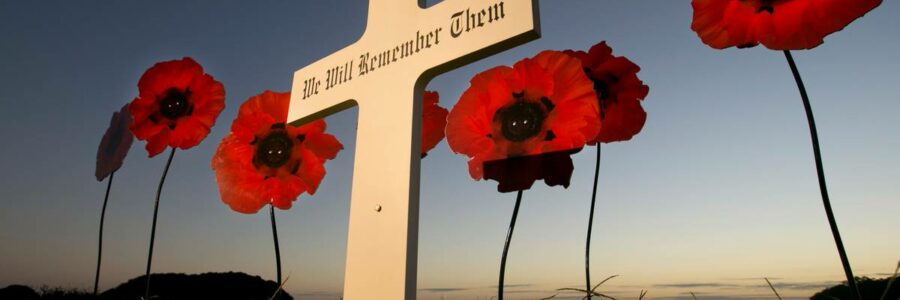
Jamie Mackay: From Riversdale to Southampton – lest we forget the price paid by rural New Zealand
OPINION: Jamie Mackay, host of New Zealand’s flagship rural radio show The Country, reflects on the Anzac spirit.
I love rural New Zealand. If you drive around it, you’ll find most little country towns have four things in common. A church, a pub, a rugby club and a cenotaph to commemorate those who made the ultimate sacrifice for their country.
If you asked me to name my favourite day of the year, it’s April 25. It’s the one day we unite as a nation, with singular purpose and universal goodwill. My family, like so many, has a real connection with Anzac Day – a spiritual connection, almost.
My grandfather got the Great War quinella, serving at Gallipoli and the Western Front. My father’s greatest regret was not being able to serve in World War II. And my brother was a war historian who gained his doctorate by completing his thesis on Gallipoli.
Let’s start with my grandfather’s story. Like so many young men from the land, Hugh Mackay saw war as an opportunity for adventure, a chance to see the world. They’d be “home by Christmas” was the rallying call.
Riding the five miles into the Southland township of Riversdale, Hugh met up with his great mate Paddy Ferris at one of the local hotels. Paddy had just joined up and, in an alcohol-fuelled display of bravado, Hugh joined him.
The following is an excerpt from my brother’s book on the history of the Otago Mounted Rifles:
“[Hugh] was wounded twice at Gallipoli, evacuated to Egypt and returned to the peninsula for the last few months, where he participated in the rear-guard in the last night of the evacuation. Back in Egypt, he was transferred to the field artillery and sent to the Western Front in April 1916.
“On the march up to the forward trenches at Messines in June 1917, two days before the big attack, Hugh badly sprained his ankle evading shellfire laced with poisonous gas. His breathing deteriorated at a hospital at Etaples where he was listed as dangerously ill with pneumonia. He was shipped to Brokenhurst hospital near Southampton, where his condition worsened.
“In later years, he recounted the story of being in an overcrowded and unsupervised ward and, for reasons unbeknown, being denied water. Severely dehydrated and in a state of delirium, he nevertheless refused to give in and, in the middle of the night, climbed down from his bed and crawled to a bucket of dirty mop water which had been left in the ward and drank it. He always maintained that this vile water saved his life.
“Declared unfit for further war service, Hugh returned to his Southland farm in early 1918. Like other soldiers disenchanted by the horrors of World War I, he became something of a pacifist, drank heavily in the company of his army cobbers, and spent a lifetime bedevilled by nightmares”.
History almost repeated itself 27 years later in 1945, when my (then) 17 year-old father Alec’s dreams to serve were thwarted by his age and the cessation of the World War II, much to the delight of his father, who had already had the heartbreak of seeing his oldest son Danny head to war.
Two world wars took a terrible toll on our population in the twentieth century, the Great War in particular. Back in 1914 our population was little more than one million people. One hundred thousand Kiwis served. Approximately half were wounded or killed. That’s a staggering five per cent of the population!
A trip to any cenotaph in small town New Zealand confirms the price paid by rural New Zealand. Often pilloried if they didn’t sign up, wide-eyed farm boys, off to see the world, left for war and those lucky enough to come home often did so as mentally-scarred, prematurely-aged men.
I want to leave my final words for my late brother Don.Unlike his three siblings he never trotted off on OEs or to University. He hated school and left at 16 to go mustering on a high country station. But ill-health and disillusionment with the returns from farming saw him revisit education and he wound up with a doctorate. He wrote the history of the Otago Mounted Rifles and he wrote a book, The Fallen, preserving the history of all the men from our small district who fell in the conflicts of the twentieth century.
On Sunday I stood in front of the cenotaph in my home town of Riversdale. I stood where my grandfather, father and brother had previously stood. I was proud of my family. I was proud to pay tribute to those who paid the ultimate price. But most importantly, I was proud to be a New Zealander. Lest we forget.
• Tune into The Country on GOLD AM, Newstalk ZB, Hokonui & online via iHeartRadio for more rural news.
Source: Read Full Article
/cloudfront-ap-southeast-2.images.arcpublishing.com/nzme/3PGNMOC3W42XXJKAFV36DUP2HM.jpg)